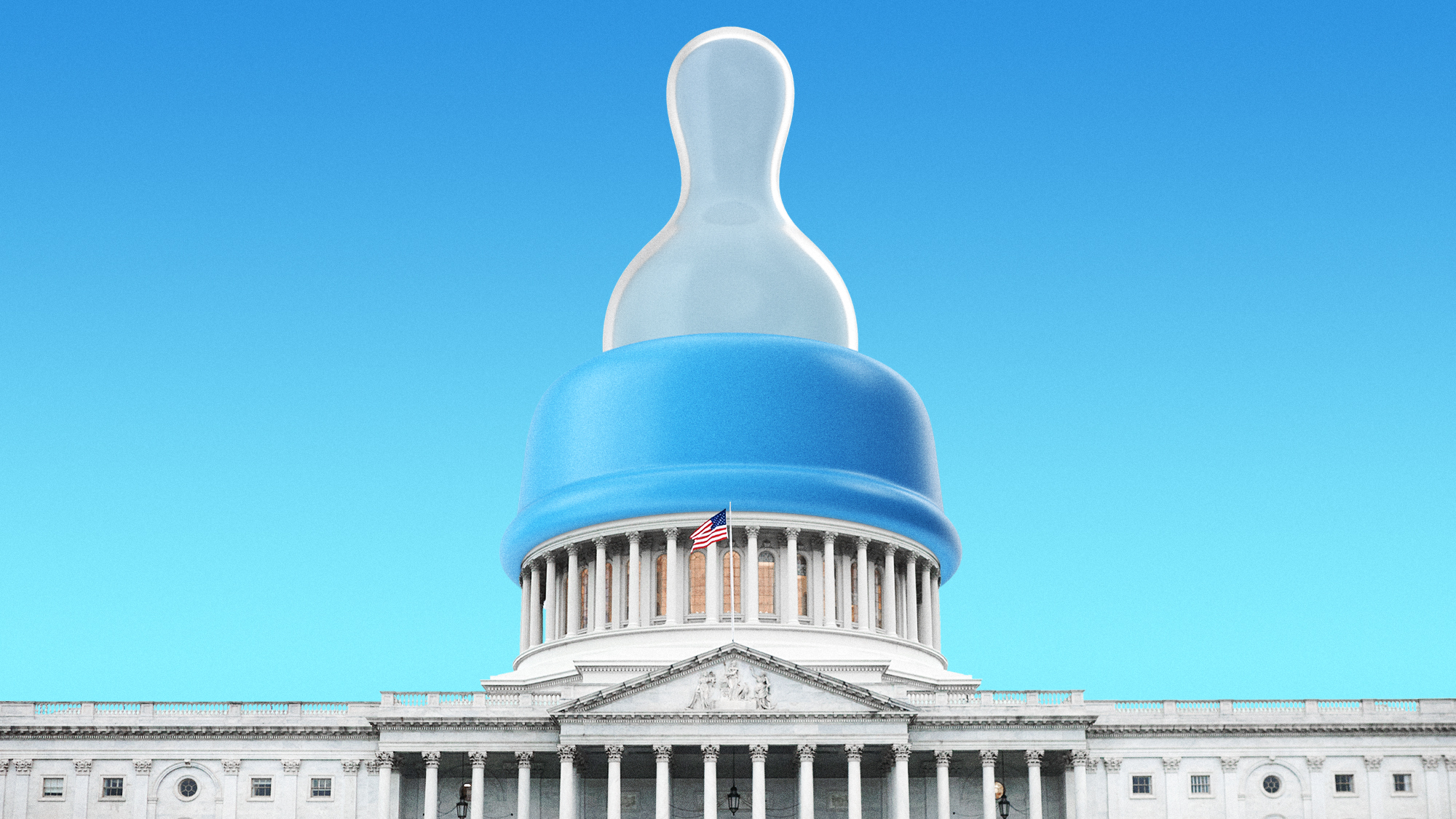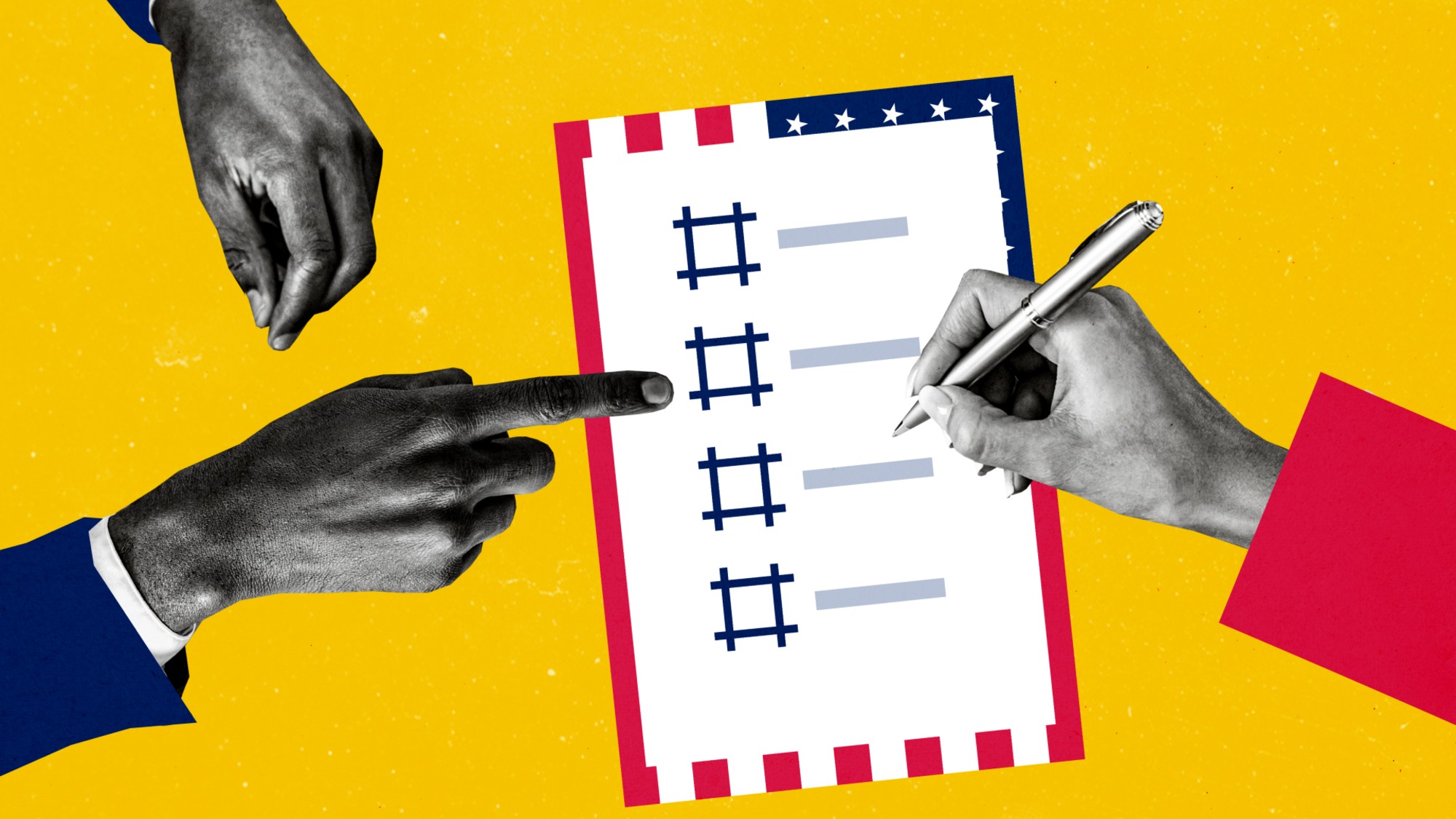The Supreme Court and Congress have Planned Parenthood in their crosshairs
Trump's budget bill and the court's ruling threaten abortion access


A free daily email with the biggest news stories of the day – and the best features from TheWeek.com
You are now subscribed
Your newsletter sign-up was successful
Planned Parenthood is fighting for its life. The organization provides health care to women across the country. But President Donald Trump's budget bill targets its funding, the latest front in GOP efforts to kill one of the country's leading abortion providers.
Trump's domestic policy bill "doesn't directly mention Planned Parenthood by name," said CBS News. Even so, the new law's target is plain: It cuts Medicaid funding to any organization "primarily engaged in family planning services, reproductive health and related medical care." The new law was signed in the days after the Supreme Court ruled that state governments can defund Planned Parenthood, said USA Today. Planned Parenthood is trying not to turn patients away, but "we may not be able to do that for long," said Dr. Katherine Farris of Planned Parenthood South Atlantic.
'De facto ban' on health care
Planned Parenthood "may not survive the Trump administration," said Moira Donegan at The Guardian. The organization is a "symbolic and material cornerstone of women's equality" that has served millions of patients. Now, that standing is in danger thanks to conservatives in Congress and the Supreme Court. Federal funding does not pay for abortions, so the issue is whether Planned Parenthood will still be paid for the "wide array of services" such as "pap smears, prenatal care and STD testing" the organization provides to a "disproportionately low-income clientele." But cuts approved by Congress and the courts will cripple Planned Parenthood, resulting in a "de facto ban" on both abortion and "any health care provision by pro-choice providers."
The Week
Escape your echo chamber. Get the facts behind the news, plus analysis from multiple perspectives.

Sign up for The Week's Free Newsletters
From our morning news briefing to a weekly Good News Newsletter, get the best of The Week delivered directly to your inbox.
From our morning news briefing to a weekly Good News Newsletter, get the best of The Week delivered directly to your inbox.
"Social conservatives have dreamed for decades about bankrupting Planned Parenthood," said Matthew Hennessey at The Wall Street Journal. The claims that the organization provides "vital health care" are "hogwash." The organization's mission is "killing babies," not providing care. Social conservatives should be wary of efforts to evade or blunt the law, but it looks like they are getting what they have long wanted. "The end of the relationship between taxpayers and the abortion industry is a beautiful thing."
Trump's attack on Planned Parenthood "punishes rural women," said Carmen James Randolph, the CEO of the Women's Foundation of the South, at MSNBC. The "deliberate attempt to kill reproductive freedom" will particularly hurt women in rural areas where "health systems are already under-resourced, rural clinics are vanishing" and maternal mortality rates are already too high. The result is a "death sentence for them and their babies."
Singled out for 'unfavorable treatment'
More than 1 million people rely on Planned Parenthood for "basic and preventative health care," said The Washington Post. The new law will force clinics to decide between abortion services or continuing to furnish other "crucial reproductive and sexual health services for low-income patients." "I'm heartbroken," said Anne Logan Bass, the clinical director at Planned Parenthood South Atlantic.
Planned Parenthood is fighting back. On Monday, it won a temporary injunction against the new law, said ABC News. The defunding provision "impermissibly" singles out the organization for "unfavorable treatment," the organization said. The reprieve may be short-lived: The injunction ends in 14 days.
A free daily email with the biggest news stories of the day – and the best features from TheWeek.com
Joel Mathis is a writer with 30 years of newspaper and online journalism experience. His work also regularly appears in National Geographic and The Kansas City Star. His awards include best online commentary at the Online News Association and (twice) at the City and Regional Magazine Association.
-
 Hyatt chair joins growing list of Epstein files losers
Hyatt chair joins growing list of Epstein files losersSpeed Read Thomas Pritzker stepped down as executive chair of the Hyatt Hotels Corporation over his ties with Jeffrey Epstein and Ghislaine Maxwell
-
 Political cartoons for February 17
Political cartoons for February 17Cartoons Tuesday’s political cartoons include a refreshing spritz of Pam, winter events, and more
-
 Alexei Navalny and Russia’s history of poisonings
Alexei Navalny and Russia’s history of poisoningsThe Explainer ‘Precise’ and ‘deniable’, the Kremlin’s use of poison to silence critics has become a ’geopolitical signature flourish’
-
 How are Democrats turning DOJ lemons into partisan lemonade?
How are Democrats turning DOJ lemons into partisan lemonade?TODAY’S BIG QUESTION As the Trump administration continues to try — and fail — at indicting its political enemies, Democratic lawmakers have begun seizing the moment for themselves
-
 ICE eyes new targets post-Minnesota retreat
ICE eyes new targets post-Minnesota retreatIn the Spotlight Several cities are reportedly on ICE’s list for immigration crackdowns
-
 Judge blocks Hegseth from punishing Kelly over video
Judge blocks Hegseth from punishing Kelly over videoSpeed Read Defense Secretary Pete Hegseth pushed for the senator to be demoted over a video in which he reminds military officials they should refuse illegal orders
-
 ‘This is something that happens all too often’
‘This is something that happens all too often’Instant Opinion Opinion, comment and editorials of the day
-
 How did ‘wine moms’ become the face of anti-ICE protests?
How did ‘wine moms’ become the face of anti-ICE protests?Today’s Big Question Women lead the resistance to Trump’s deportations
-
 Judge blocks Trump suit for Michigan voter rolls
Judge blocks Trump suit for Michigan voter rollsSpeed Read A Trump-appointed federal judge rejected the administration’s demand for voters’ personal data
-
 Big-time money squabbles: the conflict over California’s proposed billionaire tax
Big-time money squabbles: the conflict over California’s proposed billionaire taxTalking Points Californians worth more than $1.1 billion would pay a one-time 5% tax
-
 Trump’s plan to ‘nationalize’ US elections
Trump’s plan to ‘nationalize’ US electionsTalking Points States oversee voting. Will Republicans take over?
